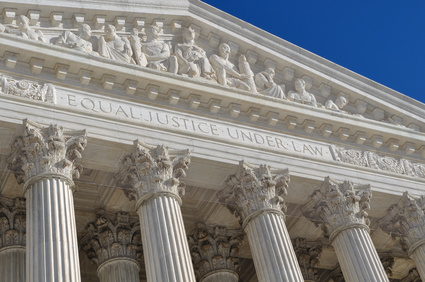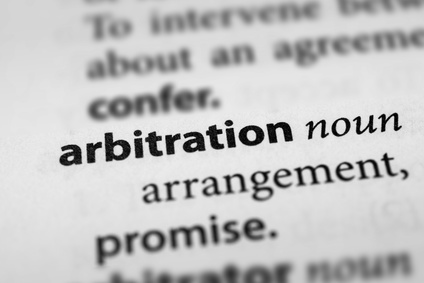The U.S. Court of Appeals for the Ninth Circuit recently amended its opinion in Ho v. ReconTrust Co., maintaining and affirming its prior ruling that the trustee in a California non-judicial foreclosure did not qualify as a debt collector under the federal Fair Debt Collection Practices Act (FDCPA). The amendments to the prior ruling among other things add that a California mortgage foreclosure trustee meets the FDCPA’s exclusion from the term “debt collector” for entities whose activities are “incidental to … a bona fide escrow arrangement” at 15 U.S.C. § 1692a(6)(F). The Ninth Circuit also removed its prior discussion of…
Posts published in May 2017
The County Court of the Nineteenth Judicial Circuit in and for St. Lucie County, Florida recently dismissed a borrower’s amended complaint against a mortgage servicer alleging violations of the Florida Consumer Collection Practices Act (FCCPA) for sending mortgage statements to the borrower following involuntary dismissal, without prejudice, of a foreclosure action. In dismissing the action with prejudice, the Court held that the statements sent by the defendant mortgage servicer were not attempts to collect a debt, and therefore not actionable under the FCCPA. In addition, the Court held that the plaintiff borrower failed to state a cause of action because…
The U.S. Court of Appeals for the Second Circuit recently affirmed the dismissal of a “data breach” lawsuit against a retailer, holding that the plaintiff lacked standing for failure to allege a cognizable injury. A copy of the opinion in Whalen v. Michaels Stores, Inc. is available at: Link to Opinion. The plaintiff made credit card purchases at a retail store and, two weeks later, her credit card information was fraudulently presented to make purchases in a foreign country. The plaintiff immediately cancelled her credit card and the fraudulent charges were not incurred on the card, nor was she liable for…
The U.S. Court of Appeals for the Eighth Circuit recently held that the requirements for the federal Class Action Fairness Act (CAFA) were met and the matter was properly removed to federal court, where the plaintiffs could not “establish to a legal certainty” that their claims were for less than the requisite amount. A copy of the opinion in Dammann v. Progressive Direct Insurance Company is available at: Link to Opinion. The plaintiff insureds purchased automobile insurance from the insurer. The insureds’ policies required deductible payments of $100 for medical expense payments and $200 for economic loss payments. Both policies provided…
The Supreme Court of the United States recently held that a city qualifies as an “aggrieved person” under the federal Fair Housing Act, 42 U.S.C. § 3601 et seq., and thus that the plaintiff city in this action had standing to assert claims under the FHA against banks the city believed were engaging in unlawful discriminatory lending practices. According to the city, the unlawful lending practices caused, among other damages, a disproportionate number of foreclosures and vacancies in majority-minority neighborhoods, which impaired the city’s effort to assure racial integration, diminished the city’s property-tax revenue, and increased demand for police, fire,…
Relying on Spokeo, Inc. v. Robins, 136 S. Ct. 1540 (2016), the U.S. Court of Appeals for the Fourth Circuit recently vacated and remanded for dismissal a trial court’s summary judgment ruling in favor of the plaintiff in an $11 million, 69,000 member class action under the federal Fair Credit Reporting Act (FCRA), 15 U.S.C. § 1681 et seq., where the defendant credit reporting agency listed the name of a defunct credit card issuer instead of the name of the servicer as the source of information on the plaintiff’s credit report. In so ruling, the Fourth Circuit held that the…
The U.S. Bankruptcy Court for the Middle District of Alabama recently held that a mortgage servicer did not violate the discharge injunction in 11 U.S.C. § 524 by sending the discharged borrowers monthly mortgage statements, delinquency notices, notices concerning hazard insurance, and a notice of intent to foreclose. Moreover, because the borrowers based their claims for violation of the federal Fair Debt Collection Practices Act, 15 U.S.C. § 1692, et seq., on the violation of the discharge injunction, the Court also dismissed their FDCPA claims with prejudice. A copy of the opinion in Golden et al v. Carrington Mortgage Services,…
The Court of Appeal of the State of California, Third Appellate District, recently held that a mortgage servicer violated California’s Homeowner Bill of Rights (HBOR), Civ. Code § 2923.6(d), when it sent a borrower a loan modification denial letter stating that the homeowner had only 15 days to appeal the denial. In so ruling, the Appellate Court held that the servicer’s denial letter was a material violation of section 2923.6, and therefore the homeowner alleged a valid cause of action for injunctive relief under section 2924.12. A copy of the opinion in Berman v. HSBC Bank USA, N.A is available…
The U.S. Court of Appeals for the Fourth Circuit held that a creditor’s arbitration agreement contained unenforceable choice of law provisions rendering the entire agreement unenforceable. Accordingly, the Fourth Circuit affirmed the trial court’s order denying the creditor’s motion to compel arbitration. A copy of the opinion in James Dillon v. BMO Harris Bank, N.A. is available at: Link to Opinion. The borrower applied for and received a “payday loan” through the lender’s website. The lender was wholly owned by a Native American tribe. To complete the loan transaction, the borrower was required to sign an agreement containing a choice…
The U.S. Court of Appeals for the Ninth Circuit recently affirmed the Bankruptcy Appellate Panel’s determination that a creditor’s pre-bankruptcy, non-recourse lien on two debtors’ real property is extinguished following a non-judicial foreclosure sale. A copy of the opinion in In re: Salamon is available at: Link to Opinion. In April 2009, two debtors purchased real property. Rather than fund the purchase price and pay off the two existing liens on the real property, the debtors executed a wrap-around mortgage in favor of the property seller. The debtors then funded the balance of the purchase price with a note secured…
The Supreme Court of the United States recently held that a state law penalizing merchants for charging a surcharge for credit card payments did not restrict the amount that a store could collect when a buyer paid by credit card (i.e., a regulation on conduct). Instead, the Court held that the state statute regulated how sellers may communicate their prices, and was therefore a regulation on speech subject to First Amendment scrutiny. As you may recall, in Dana’s R.R. Supply v. AG, 807 F.3d 1235 (11th Cir. 2015), the U.S. Court of Appeals for the Eleventh Circuit held that a…












